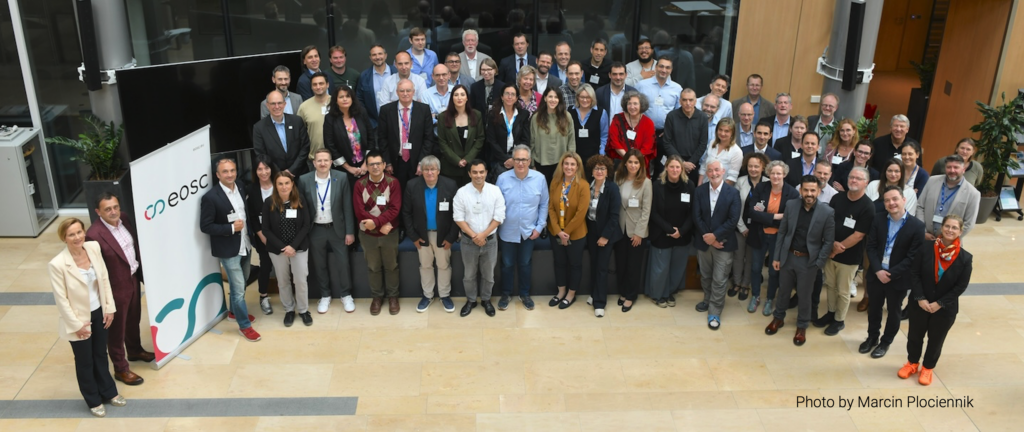On June 20 and 21, 2024, the European Commission invited all Horizon Europe projects funded under the INFRAEOSC call to Brussels. This working meeting, which takes place once a year at the invitation of the European Commission and is (co-)organized by the EOSC Association, serves as a platform for exchange between representatives of the Commission and the projects. Ilire Hasani-Mavriqi and Stefan Reichmann (both RDM Team, TU Graz) took part in this working meeting at the invitation of the EU Commission on behalf of the EOSC Focus project, Tomasz Miksa (TU Vienna) on behalf of the OSTrails project.
The coordination meeting focused on the INFRAEOSC projects that are being funded as part of the 2023 call for proposals, as well as cross-project cooperation within the framework of the so-called Opportunity Area Expert Groups, a mechanism developed by the EOSC Focus project for networking and technical cooperation across all (currently 25) INFRAEOSC projects. The seven INFRAEOSC projects funded in the latest INFRAEOSC call (2023) were featured prominently in the meeting, as was the cross-project collaboration within the Opportunity Area Expert Groups. The new projects, i.e. EOSC Beyond, EOSC ENTRUST, EVERSE, OSCARS, OSTrails, SIESTA and TITAN, presented their objectives and workplans.
After introductory sessions on the development of the EOSC and the concept of the Federation, the six Opportunity Area Expert Groups (hereinafter: OA Expert Groups) were presented by representatives of six INFRAOESC projects (preparation & coordination: EOSC Focus). Gorka Epelde (Project: RAISE) presented the OA Expert Group 1 on the topic of Persistent Identifiers. Simon Hodson (WorldFAIR) spoke to the topic of metadata, ontologies and interoperability (OA Expert Group 2). Daniel Garijo (FAIR-IMPACT) presented OA Expert Group 3 (FAIR Assessment & Alignment), Björn Grüning (EuroScienceGateway) spoke on OA Expert Group 4, User & Resource Environments. Finally, Sara DiGiorgio from the Skills4EOSC project and Celia van Gelder (EOSC-A) presented OA Expert Group 5 (Skills, Training, Rewards & Upscaling), and Johan Rooryck (CraftOA) spoke on OA Expert Group 6 (Open Scholarly Communication). The feedback was consistently positive across all projects. In particular, the opportunity offered by the Opportunity Area Expert Groups to work across projects was emphasized.
The OA Expert Groups website provides an overview of topics and collaboration in the OA Expert Groups, with ample opportunities to engage: Interested parties are invited to register for participation in one (or more) working groups. Collaboration is open to all interested parties (including those outside the INFRAEOSC projects).
A detailed summary of the working meeting including links to the presentations can be found here.
